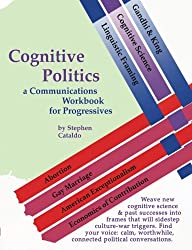"Gish-Gallop Innoculations"
Climate change is falsely-controversial with a Gish Gallop of unending confusion. I've seen two counter-approaches:
- "Teach the controversy" countering point by point by point, which unfortunately creates the frame that this is a real debate. See http://bit.ly/1A0NQrG, or http://grist.org/series/skeptics/
- Explain the scientific consensus simply ignoring the deniers. For most people without sufficient science background, this leaves them simply deciding who they trust more.
I want to explore another way, creating a base of information from which honest but confused people can understand enough of how we learned what we learned so that denialism seems crazy. I think the best way would be how my modern physics teacher taught: experiment by experiment, showing how knowledge was built up rather than starting with the conclusion. In this case, I think it should be a field-by-field history: how did physicists become convinced that increased CO2 would cause warming? Biologists become convinced that CO2 would increase? Statisticians become convinced that we see evidence? This could be decade by decade, with a bit on denialism at each stage.
I'm imagining something that is a gamified or quiz-filled front on a long but readable article, that we need to write.
So, how do you talk about climate change to intelligent people who feel more allegience to groups that deny climate change than they do to the science community? Deniers have their talking points, and websites to send people to -- what are ours? Want to combine ideas?
Here are my key talking points when I have a conversation about Global Warming.:
A brief history of global warming, based on type of science:
Physics, mid-20th c. For perhaps half a century, the basic physics of what happens if we release CO2 and other global warming gasses into the atmosphere of a planet has been well understood. Old textbooks, before there was any controversy here, explained CO2 global warming here and on Venus. We couldn't model the details because we couldn't model the climate accurately ... but getting an overall estimate, looking at the overall heat exchange of the planet, CO2 increases clearly would cause warming. But fifty years ago, we did not know that CO2 would build up.
- The super-basics: The earth is nearly in balance, with heat (light) coming in from the sun matching heat radiated back into space from the earth, much like hot iron glows red, the earth glows infrared. CO2 is relatively invisible to higher wavelength light from the sun, and reflective of lower wavelength light radiated back out into space. Unless something very strange happens, increase CO2 and the air, water and/or land will get warmer. (The oceans, in fact, hold much of the heat -- which is a key part of why we can have an earth that operates on basic heat exchange physics but has different weather from year to year.)
1980s: Biology and Earth Science During the Reagan years, the debate about global warming was different than today. Back then, skeptics (this is from my memory) focused on the idea that increased CO2 would lead to increased plant growth and other absorption, and CO2 would not build up in the atmosphere. When people argued that humans would not impact the climate, back then they argued the reason was that CO2 would not build up much. When CO2 did build up, the arguments switched.
1990s: Climatology and Statistics CO2 did build up. It would take some pretty strange climate effects to counter the increased heat we knew was being reflected back. By the 1990's, the underlying science was getting much clearer, and the debate was getting less and less honest: the basic physics was clear, CO2 was building up, more heat/light was being reflected back to earth. But we could argue about climate models till we fry. In a way, if we had no computers for climate models and no satellites for atmospheric measurements, global warming would have been "debate the details but no real argument it's happening" by the early 1990s. Deniers have been using the rather odd argument that the earth's climate is unstable, that there has been warming in the past. But this argument only make sense if you believe in statistics, but not physics -- if we have an unstable climate and have added gasses that will cause increased heat/energy to our atmosphere and oceans, then we're taking an even bigger risk with our children's lives. Other aspects of the debate are a form of bait-and-switch, for example putting the claim into the mouths of scientists that because GW gasses cause warming, ONLY GW gasses cause warming. Whether or not there was a Medieval Warming Period is just a detail compared to the basic physics, the straightforward energy flow of more heat arriving than leaving our planet.
2000s: Proof of Theory In the last few years, we've seen a much more detailed set of evidence that basic physics works, even when industry and consumers wish it didn't. For example, * NASA can tell you how many watts per square meter are reflected back on the earth thanks to global warming gasses * Measurements of the upper atmosphere match the predictions of energy being reflected back to earth by GW gasses.
* There is a warming trend that basically matches the GW theory.
More For a longer and better footnoted history, see The Carbon Dioxide Greenhouse Effect or increasing detail.
